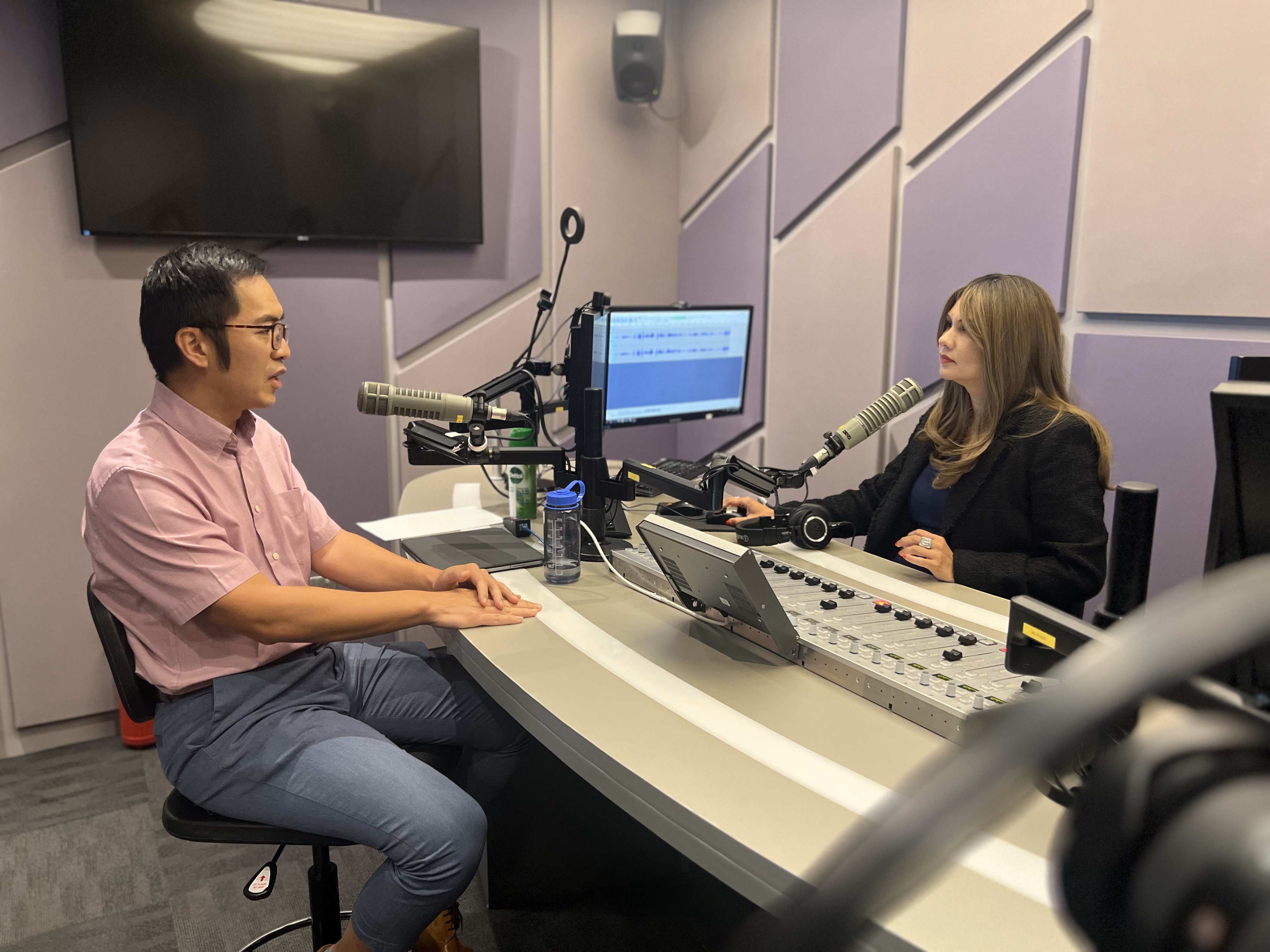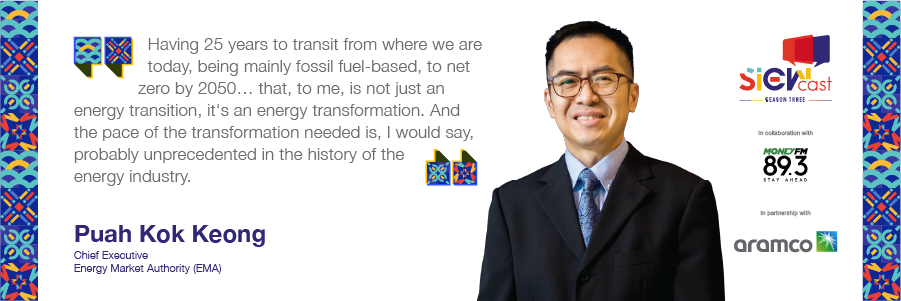Where is Singapore on the path to achieving net zero emissions by 2050? In this SIEWCast episode, Money FM 89.3's Michelle Martin speaks with Mr Puah Kok Keong, Chief Executive of the Energy Market Authority (EMA). Just two months into his role, Mr Puah outlines his bold vision for Singapore's energy transition. He highlights the need to explore diverse, sustainable energy sources. Mr Puah also emphasises the crucial roles that regional interconnectivity and innovation will play in shaping "A Connected and Sustainable Energy World" in the context of this year's SIEW theme.
Show Notes:
In this episode, we discuss…
- Singapore's approach to the energy trilemma.
- The 4 Switches strategy driving Singapore's energy transition.
- Advancing regional interconnectivity through the ASEAN Power Grid.
- Exploring new technologies such as hydrogen, carbon capture, and nuclear energy.
- The International Energy Agency (IEA)'s first overseas office in Singapore, and catalysing regional collaboration.
- Singapore's leadership in energy innovation and regional collaboration.

Key takeaways
01:22 | | Singapore's energy strategy revolves around three critical priorities: balancing security, sustainability, and affordability. The challenge lies in balancing these priorities to reduce emissions, while ensuring energy remains reliable and affordable for both consumers and businesses. |
03:30 | | The 4 Switches—natural gas, solar, regional power imports, and emerging low carbon alternatives—are central to Singapore's strategy. This aims to reduce carbon emissions and achieve net zero by 2050, despite the country's heavy reliance on natural gas. |
03:54 | | Singapore plans to increase its solar capacity from 1.2 to 2 gigawatt-peak by 2030, as solar has become one of the cheapest sources of electricity. Building owners are encouraged to install solar panels, contributing to both lower electricity costs and reduced carbon emissions. |
04:50 | | Singapore is collaborating with neighbouring countries to develop the ASEAN Power Grid. This initiative enables the import of renewable energy from the region. Cross-border cooperation will enhance energy resilience and secure a diversified, cleaner energy supply. |
05:31 | | Singapore is at the forefront of exploring future energy technologies, including hydrogen, carbon capture, and nuclear energy. These innovations are critical to decarbonising the power sector and growing Singapore's capabilities in the area of sustainable energy solutions. |
06:24 | | The opening of the International Energy Agency (IEA)'s first overseas office in Singapore positions the country as a key hub for regional energy collaboration. This strengthens partnerships on energy security, policy development, and innovation across Southeast Asia. |
12:12 | | Singapore recognises that international cooperation is essential to its energy transition. Collaborative projects, such as carbon capture and regional power imports, will play a vital role in scaling up new technologies and achieving sustainability goals. |
14:01 | | While the region is rich in renewable energy resources, building the infrastructure to harness this requires significant upfront investment. Large-scale solar and battery projects can cost billions. But once built, the energy—such as sunlight—is free. To attract investors, it’s crucial for governments to provide regulatory certainty and reduce project risks, ensuring long-term success and driving the energy transition. |

About our guest Mr Puah Kok Keong is the Chief Executive of the Energy Market Authority, responsible for ensuring a reliable and secure energy supply, promoting effective competition in the energy market, and developing a dynamic energy sector in Singapore. Prior to joining EMA, Mr Puah served as the Deputy Secretary (Policy) at the Ministry of Home Affairs from 2016 to 2024. During this time, he oversaw key areas such as policy development, strategy planning, resource management, international cooperation, and research & statistics. His career began at the Ministry of Trade and Industry in 2002 as an economist, where he later became the Deputy Director of Energy Policy in 2007. In 2008, he transitioned to the Ministry of Health as Deputy Director of Primary and Community Care, before advancing to Director of Governance and Planning in 2010. From 2011 to 2015, he assumed the role of Director for Fiscal Policy at the Ministry of Finance. Mr Puah is also a board member of the National Environment Agency and Meranti Power. He received a Master's and Bachelor's degree in Economics from the Massachusetts Institute of Technology in 2000. He was also awarded a Master's in Management Science from Stanford University which he completed in 2016. |
Additional Resources
- Mr Puah Kok Keong's bio
- Navigating the energy trilemma [01:22]
- Singapore's 4 Supply Switches [03:30]
- Solar, Singapore's most promising renewable energy source [03:54]
- Paving the way to realising the ASEAN Power Grid vision [04:50]
- Low carbon alternatives to speed up carbon emissions reduction [05:31]
- IEA partners with Singapore for first office outside of Paris headquarters, to deepen engagement in Southeast Asia and beyond [06:24]
You can find the transcript of this episode here.
- Sign up for the SIEW newsletter to get notified about future SIEWCast episodes straight to your inbox.
- Register now at https://register.siew.gov.sg for the Singapore International Energy Week (SIEW) 2024, taking place on 21 - 25 October.
This SIEWCast episode is brought to you by Singapore International Energy Week (SIEW) and Money FM 89.3, in partnership with Aramco.